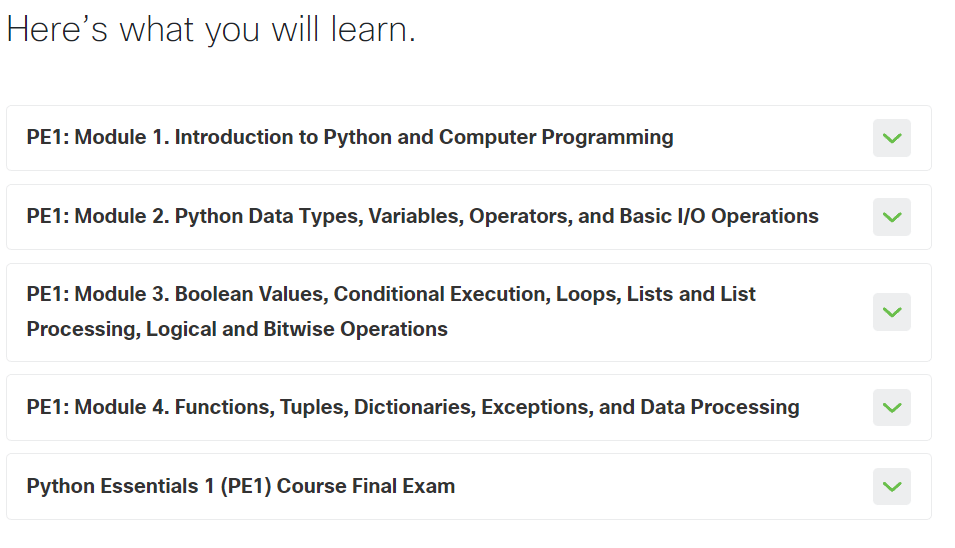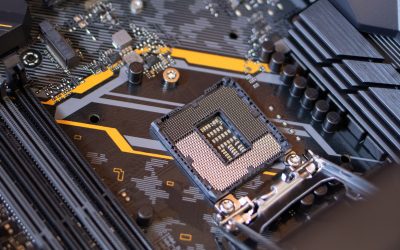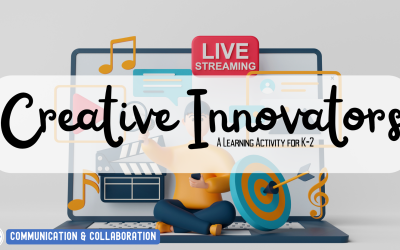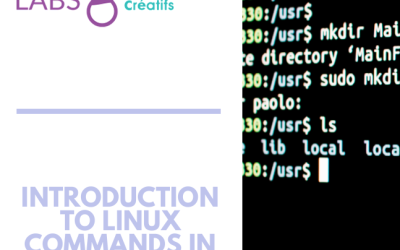Overview
Learn fundamental concepts of computer programming and start building coding skills with the Python programming language.
In this course, you will learn in-demand skills such as how to design, develop, and improve computer programs, methods for analyzing problems using programming, programming best practices, and more. The course also prepares you for the PCEP – Certified Entry-Level Python Programmer certification (Exam PCEP-30-0x).
Developed in collaboration with OpenEDG Python Institute.
Career Education Connections
- Python Developer: With the ability to build small and large-scale software projects, a Python developer can work for startups, tech giants, or any industry that requires computer programming skills. They use their Python knowledge to design, develop, and improve computer programs, and troubleshoot issues in existing software.
- Software Engineer: Python is widely used in software development, so a student who has completed this course can become a software engineer. They will be responsible for creating and maintaining software applications, analyzing user needs, and ensuring the software meets performance standards.
- Data Scientist: Python is one of the most popular programming languages in the field of data science. With the knowledge of programming best practices, data analysis methods, and Python libraries like NumPy and Pandas, a student can become a data scientist who analyzes and interprets complex data sets to solve business problems.
- Systems Administrator: A systems administrator is responsible for managing the computer systems of an organization. With knowledge of Python programming and system administration, a student can become a systems administrator who troubleshoots problems, sets up and maintains servers, and manages network operations.
- Security Engineer: As cybersecurity becomes increasingly important, companies are seeking security engineers to protect their computer systems from attacks. A student who completes this course can become a security engineer with knowledge of Python programming and security best practices, and they will work on securing computer networks, developing security protocols, and implementing security measures to prevent unauthorized access.

NB Curricular Outcomes
Technology Middle Block
- Strand: Information Technology Skills – Big Idea: Computation Practice
Technology 9
- Strand: Information Technology Skills – Big Idea: Computational Practice
Computer Science 110
- Strand: Computation Thinking – Big Idea: Decomposition; Pattern Recognition; Abstraction; Algorithms
- Strand: Coding – Big Idea: Planning and Documentation; Software; Data
What you’ll need
- A computer (or tablet).
- Internet connection.
Instructions
- Click the self-enrollment link here.
- You will then create a Cisco Skills for All Account (note: you will need to use your @nbss.nbed.nb.ca student email to enroll).
- Once you have enrolled, you can begin working on the course on your schedule as time permits!
Reflection Activity
Please see the attached PDF for several choices on how you and your learners can reflect upon today’s activity.
Acknowledgements
These interactive technology-based courses are provided through a valuable partnership between Cisco Networking Academy, Skills for All, the Department of Education and Early Childhood Development, and the Centre of Excellence for Digital Innovation. Skills for All democratizes access to this job-ready training by enabling any learner or educator in the province ages 13+ to enroll in Cisco Networking Academy courses – including cutting-edge cyber curriculum – completely free of charge. To see the full catalog of available courses and pathways, go to: https://skillsforall.com/catalog






